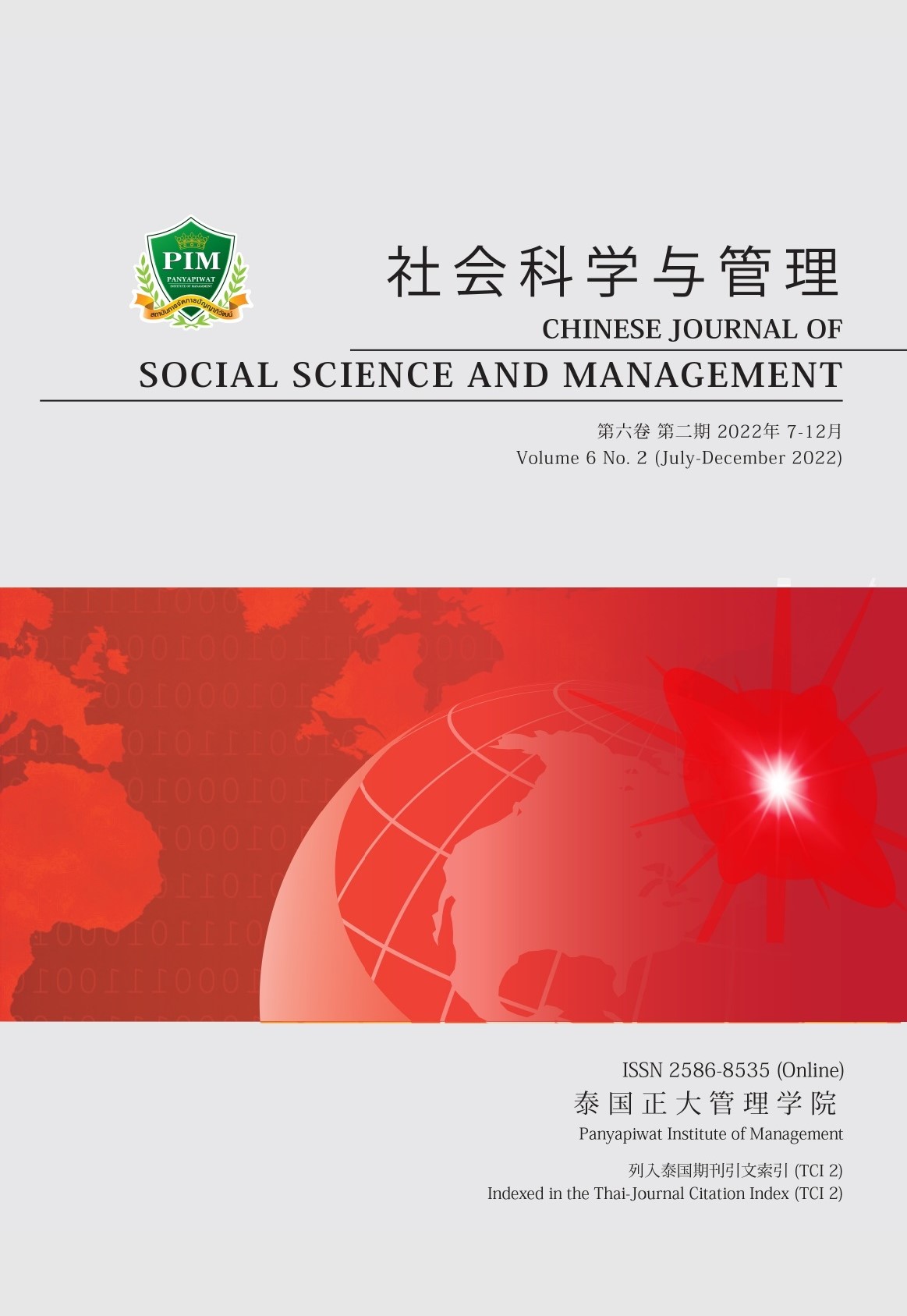AN ANALYSIS OF THE SELF-CONCEPT OF FEMALE CONSUMPTION
Main Article Content
Abstract
As an important part of the market, female consumption is worthy of further study. The selfconcept of female consumption is the basis of guiding this form of consumption. The author adopted the methods of a literature review, interview, and statistical analysis to select scientific samples, and use simple random sampling and qualitative research features of 22-60-year-old women with independent consumption ability. The method of judgment sampling was used to interview 14 subjects and collected
the required data. Based on the grounded theoretical research, this paper clarified the dimensions of female consumers’ self-concept, formulated the measurement scale of female consumers’ self-concept, and developed and verified the theoretical model of female consumers’ self-concept. It was found that demographic factors, such as city, age, education level, and income level could have an impact on women’s consumption behavior combined with the actual situation of the 14 respondents. The self-concept could be divided into ideal self, social self, subjective self, psychological self, and development self through open coding, spindle coding, and selective coding.
Article Details

This work is licensed under a Creative Commons Attribution-NonCommercial-NoDerivatives 4.0 International License.
Chinese Journal of Social Science and Management Editorial Division
The Office of Research and Development, Panyapiwat Institute of Management
85/1 Moo 2, Chaengwattana Rd., Bang Talat, Pakkred, Nonthaburi 11120, Thailand
Tel. 02 855 01048 E-mail: cjssm@pim.ac.th
References
Allport, G. W. (1955). Becoming: Basic considerations for a psychology of personality. Journal of Philosophy, 54(16), 505.
Babble, E. (2005). Social research methods (10th ed.). Hua Xia Press.
Baumeister, R. F. (1982). A self-presentational view of social phenomena. Psychological Bulletin, 91(1), 3-26.
Byrne, B. M. (1983). Investigating measures of self-concept. Measurement and Evaluation in Guidance, 16, 115-126.
Cao, G. J. (2005). Research on the relationship between consumer self-concept, lifestyle, and brand personality [Doctoral dissertation]. Zhejiang University. [in Chinese]
Cooley, C. H. (1922). Human nature and the social order. American Journal of Sociology, 148(2), 351-353.
Graeff, T. R. (1996). Using promotional messages to manage the effects of brand and self-image on brand evaluations. Journal of Consumer Marketing, 13(3), 4-18.
Guo, Y. X. (2009). Qualitative data analysis: NVivo 8 guidebook. Higher Education Press.
James, W., Burkhardt, F., & Skrupskelis, I. K. (1981). The principles of psychology. Dover Publications.
Li, Y. Q., Mao, Y., Bai, X., & Zeng, Z. (2008). Research on self-concept and brand personality matching. Soft Science, 22(6), 42-45. [in Chinese]
Malhotra, N. K. (1981). A scale to measure self-concepts, person concepts, and product concepts. Journal of Marketing Research, 18(4), 456-464.
Niu, S. H. (2012). A study on the consumption behavior of white-collar women in Shanghai from the perspective of consumerism [Doctoral dissertation]. East China University of Science and Technology. [in Chinese]
Norman, K. D. (2007). Qualitative Research: Strategy and Art. Chongqing University Press.
Pan, H. L. (2005). The path of educational research: Concept and application. East China Normal University Press. [in Chinese]
Rosenberg, M. (1979). Conceiving the self. Basic Books.
Schouten, J. W. (1991). Selves in transition: Symbolic consumption in personal rites of passage and identity reconstruction. Journal of Consumer Research, 17(4), 412-425.
Shavelson, R. J., Hubner, J. J., & Stanton, G. C. (1976). Self-concept: Validation of construct interpretations. Review of Educational Research, 46(3), 407-441.
Simon, H. A. (1991). Bounded rationality and organizational learning. Organization Science, 2(1), 125-134.
Sirgy, M. J. (1982). Self-concept in consumer behavior: A critical review. Journal of Consumer Research, 9(3), 287-300.
Sirgy, M. J. (1985). Using self-congruity and ideal congruity to predict purchase motivation. Journal of Business Research, 13(3), 195-206.
Strauss, L. (1997). Introduction to qualitative research. Juliu Book Company.
Tan, Q. (2004). The application of self-concept in female consumer market [Master’s thesis]. Southwest Jiao Tong University. [in Chinese]
Zhang, L. (2015). A study on the consumption psychology and chocolate market strategy of young and middle-aged women. Guide to Business, (11), 91, 103. [in Chinese]
Zhao, H. (2007). An empirical study of brand attitude based on self-concept [Doctoral dissertation]. East China Normal University. [in Chinese]
Zhu, P. Y., & Cao, W. J. (2010). The symbolic characteristics and motivation of the consumption of urban young professional women. Journal of Shandong Women’s University, (6), 58-63. [in Chinese]


